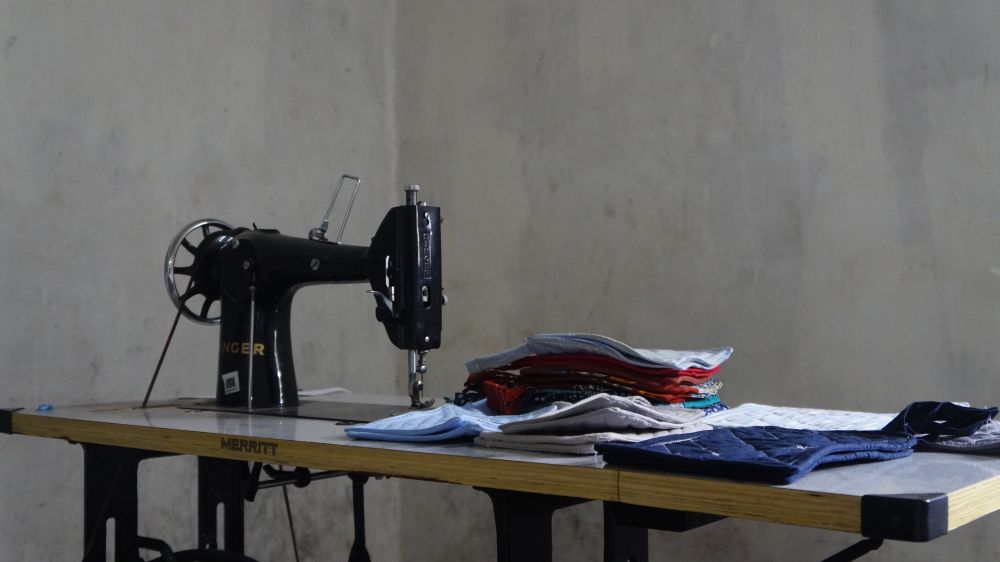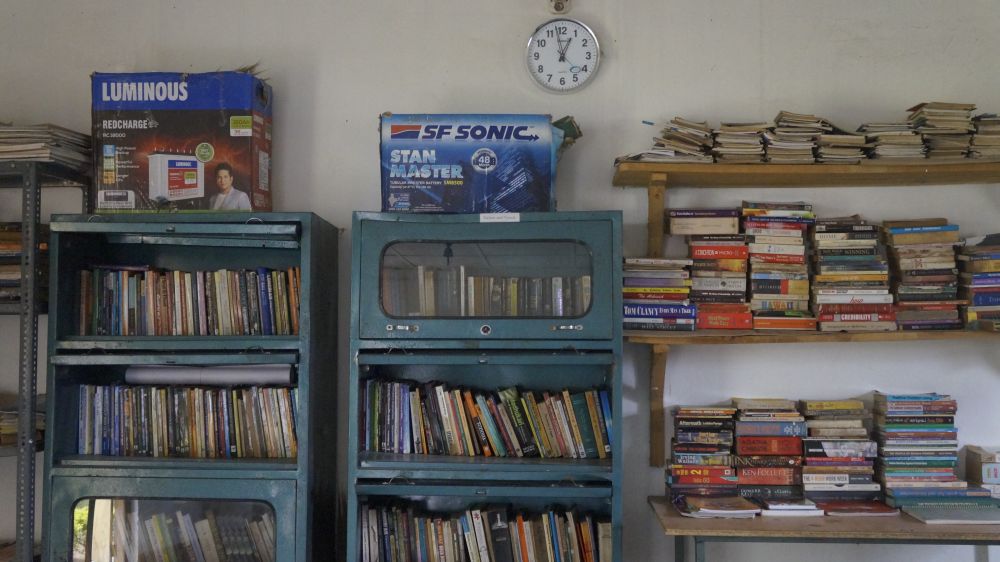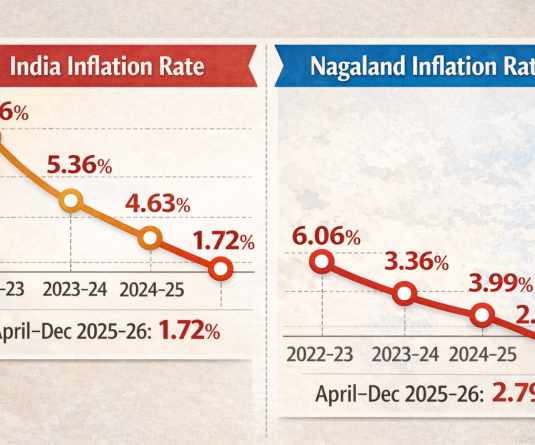Some of the products made by the inmates being displayed inside the training room. (Morung Photos)
Chümoukedima Central Jail transforms into center for rehabilitation
Kanili Kiho
Chümoukedima | August 14
In an era where the concept of imprisonment is undergoing a paradigm shift, the Central Jail in Chümoukedima stands as a beacon of change. What was once a stark symbol of confinement has evolved into a progressive “correctional institute,” aimed at fostering growth, reform, and societal reintegration.
Established back in 1965 as a place of confinement for convicted inmates, Nagaland's lone Central Jail has embraced a comprehensive overhaul over the years. No longer just a facility to serve sentences, it has metamorphosed into a centre for rehabilitation and skill enhancement.
“We follow the principle of three Rs – Reformation, Rehabilitation and Reintegration with the society when they go back,” said Dr Oben Yanthan, Jailor of the Central Jail when The Morung Express visited the high security prison on a weekday.
While the inmate population is not large as compared to other big prisons across the country, Dr Yanthan maintained that the state's Prison Department has been trying to reform the concept as much as is feasible, by undertaking various correctional activities and skilling projects.
The focus has shifted towards nurturing personal growth and change. Inmates are now exposed to a spectrum of activities designed to reshape their perspectives on life, he added.
Since 2017, the Central Jail has been offering certified courses on handicrafts, culinary, sanitary pad manufacturing, LED bulb repair and manufacturing, detergent manufacturing, painting classes, baking, and the recently concluded training on tailoring. Several NGOs have been partnering with the prison on various projects. Livestock rearing such as poultry and piggery are also taken up.
Through these skill development trainings, they acquire practical expertise that not only enriches their lives but also equips them for a fresh start, upon re-entry into society.
Dr Yanthan related that the focus is mainly on the convicted inmates, where they have to serve a certain time of their punishment. However, the trainings are also open to the under trials who are willing to learn and work.
For the very first time, the inmates of Central Jail will be exhibiting their works at a stall alloted to them during the 77th Independence Day celebration in Dimapur on August 15.
In a novel venture for the prison, the stall will display varied works of the inmates to the public; from decorative objects, woven baskets, 'mora' (traditional seat), bamboo cups, sanitray pads, clothes, detergent powder etc.
The handicrafts are all designed locally, showcasing the rich Naga culture, for instance the bamboo cups, bamboo baskets, decorative pieces such as hornbill birds and miniature model houses. “These products are all in high demand,” Dr Yanthan said.
Economic condition being one of the common factors of crime being committed, he said the certification courses will help them earn when their term is over.
From 2017, around 60 bank accounts have been created for the inmates who are working in different capacities in the prison. 60% of the profit received is deposited to their accounts.
Over the years, a lot of inmates have been trained, with some already released from the prison. At the same time, the trained individuals have now shouldered the responsibility of teaching the new batches in different courses.
Opening up a bakery is also in line, where the machines have been installed, informed Dr Yanthan. A canteen will be shortly opened in the prison premises, where basic essentials along with the works of the inmates will be sold.
The first few days will be set aside exclusively for the inmates and the prison staff and for the rest of the month, they plan to open it for the well-wishers who would like to buy the locally made products.
Head of the Central Jail, Senior Superintendent, C Motsuthung Yanthan said the holistic approach is taken with the aim that inmates cannot indulge in the same crime they committed and instead, build up their future on a clean slate.
While acknowledging the cooperation of the prison staff and the stakeholders involved, he hoped that this message will reach out to the public that prisons exist in our society too, and “we are doing our best.”
The inmates are trained according to their interests, talents and experiences they had outside. Once they are skilled and leave the prison, with the small amount of money they have earned, they can begin a start-up and can also apply for loans, with trainings being a certificate course.
The convicts from as young as the early 20s to 60s acknowledged the prison authority for the facilities provided including sports and games, a library, counselling for mental wellbeing, and church services conducted regularly. All these activities keep their health and mind in check, while they look forward to a new lease of life, once they serve their term.




.JPG)
.JPG)
.JPG)



